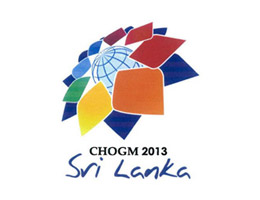A glimpse into the historical background of the Commonwealth
by Rupa Banduwardena
The world war of 1939 – 1945 ruined the structure of civilised
society to such an extent that most of the nations of Central and
Western Europe and of the Far East were devastated as if during the dark
ages. The search for a system to guarantee economic justice and security
was so urgent that some of the nations who had to undergo moral,
physical and economic frustration due to war were trying their best to
seek a solution.
 Emerging from the ordeal in their efforts to achieve recovery, they
were aiming at peace. In this regard the emergence, the experience and
the influence of the British Commonwealth was of immense value. Emerging from the ordeal in their efforts to achieve recovery, they
were aiming at peace. In this regard the emergence, the experience and
the influence of the British Commonwealth was of immense value.
Clearly, it cannot make such a contribution unless its members
understand how it grew, how it works and what it stands for, both beyond
and within its borders. The Commonwealth, to start with was engaged in
experiments in the field of mutual relationships of vital importance for
the future mankind.
Worthy principle
With regard to the independent Dominions of the Commonwealth, the
effective cooperation in time of peace within a group of multi-racial
free nations was a worthy principle to be upheld.
Today there is a single Commonwealth comprising partnership of equal
nations which make a valuable contribution in the field of international
cooperation.
This involves the task of raising the economic and cultural standards
of backward nations. However, a beginning has been made. The British
Colonial Empire consisted of 67 million people inhabiting over 50
different territories all of which were situated in tropical areas. It
was a collection of communities including societies of Europeans,
cultured Asians and ancient primitive tribes.
From the Colonial Empire established earlier, member countries such
as America, Canada, Australia, New Zealand and South African colonies
graduated to nationhood.
Small colonies could not readily be nations in their infancy. Limited
in numbers, resources and therefore in cultural opportunities, they were
dependent on Great Britain, controlled by the Secretary of State for the
Colonies who was responsible to the Parliament in Westminster.
The old empire also included territories sponsored during European
invasions such as during Cromwell and Napoleon – Jamaica in 1655,
Trinidad in 1797, Gibraltar in 1704 and Malta in 1798. Sugar from West
Indies and the spices from Ceylon were always at the back of their
minds. But their consideration in all cases was purely strategic – the
defence of the ocean routes upon which the British industry and overseas
commerce depended.
During the 19th century when British sea power was supreme in every
ocean, it enabled the British to accumulate wealth and keep the sea
routes safe and secure. Thus trade and the maintenance of sea power were
the main motives that led to the territorial expansion in the Far East
and the Pacific.
By means of mounting revenue derived from capital investment in the
colonies, there dawned a new era of cultural and material progress with
a highly developed system of social services. It is little more than
half a century since British rule was established in the Empire.
The impact of Western civilisation and the consequent problems to
start with were new to British imperial experience. Yet those living
under the British flag changed from a life of terror and savagery into a
life of peace and security with a steady cultural and economic progress.
A series of conferences were held to discuss such common problems
such as malnutrition, diseases, medical and veterinary matters and soil
erosion.
Britain was setting about the task successfully to achieve their
targets. Efforts were being made to grow more food for local
consumption, to introduce manufacturing industries with the assistance
of the British government.
The Royal Commission of 1939 made the position clear which led to the
setting up of the Colonial Development and Welfare Organisation as a
part of Colonial Policy in Action.
The name, Sir Frank Stockdale is remembered for his service in this
regard. His work signifies the opening of a new chapter in colonial,
economic and social history.
A meeting of Commonwealth Prime Ministers was held in London in April
1949. The Prime Ministers of the United Kingdom, Australia, New Zealand,
South Africa, India, Pakistan and Ceylon and the Canadian Secretary of
State for External Affairs met in London to exchange views on important
constitutional issues and maintain the constitutional relations among
its members.
Goodwill
This was conducted in an atmosphere of goodwill and mutual
understanding to strengthen its unity of purpose while adapting changing
circumstances.
All the members had the desire to continue full membership of the
Commonwealth of Nations and their acceptance of the King as the symbol
of the free association of its independent member nations and as such
the head of the Commonwealth.
The members declared that they remain united as free and equal
members of the Commonwealth, freely cooperating in the pursuit of peace,
liberty and progress.
The constitutional questions have been the sole subject of discussion
at the meeting of Prime Ministers.
This year's Commonwealth Heads of Government Meeting (CHOGM) will be
held in Colombo from November 15 to 17. |


